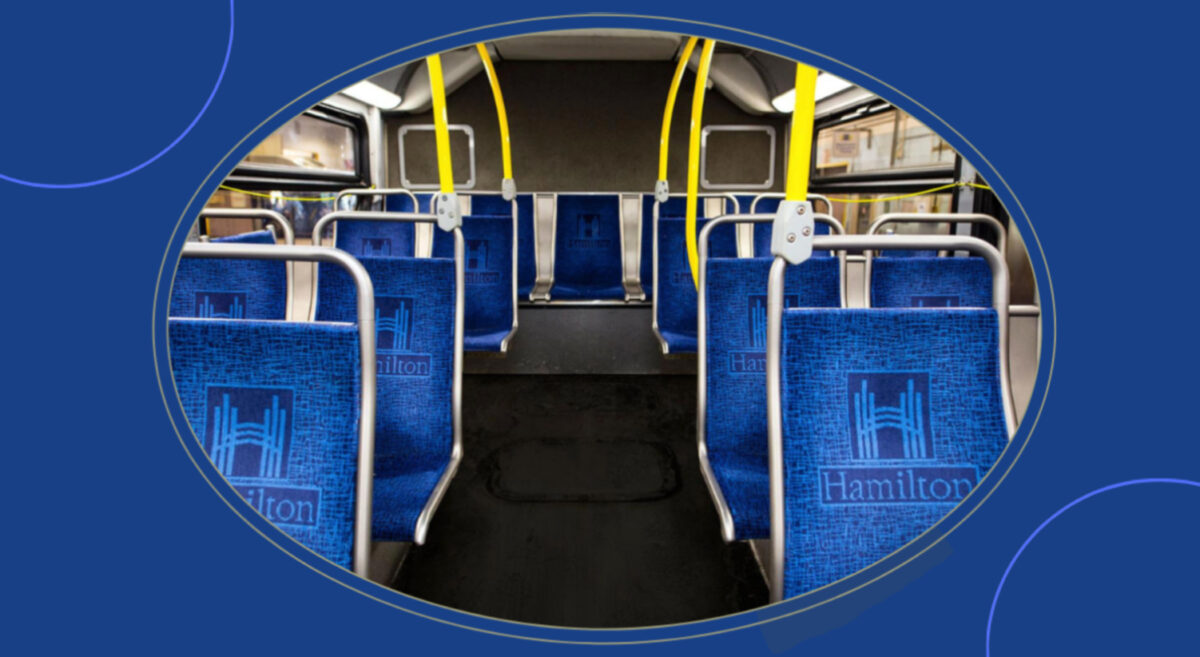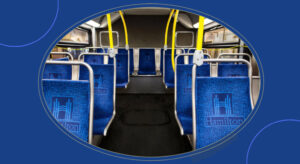
Endorse Care Fare Transit
The Hamilton and District Labour Council is proceeding with a municipal election initiative with regards to public transit in the City of Hamilton. While our ultimate goal is free/low-cost public transit for all in the city, we are prepared to work on a graduated approach to ensure some of our community’s most vulnerable people have the most access.
Our proposal is based on the idea that these members of our community deserve a transit fare that shows we care for their ability to have full access and mobility around our city.
The CARE FARE approach is asking City Council to support the movement towards ensuring no fare box costs for members of each of the following groups while committing to the steps and research necessary to implement the four steps by 2026.
Our four identified groups designated for a CARE FARE trip rate include the following:
- All K-12 students attached to local school boards.
- Anyone aged 60 or over.
- Anyone receiving benefits from Ontario Works or the Ontario Disability Support Program.
- Anyone with a diagnosed disability.
If your organization is interested in endorsing this effort, and having your name identified with the platform on lobbying and promotional materials going forward, please let us know and email a copy of your logo to HDLC President, Anthony Marco, at amarco@rogers.com.
Some quick notes on each of the four identified groups:
K-12 Students
Some K-12 children in the city are currently being given free HSR public transit under a pilot project. By attaching the CARE FARE transit to school boards, the Presto card system can still be used and ridership can be tracked. Our hope is that the local school boards will continue to reimburse the HSR with the money they currently spend on reimbursed bus passes and tickets, therefore not reducing current HSR revenue. We are having initial conversations with school boards to assess their buy-in. The idea for school boards is that by continuing to pay the current reimbursements to the HSR, ALL of their students would be eligible for free transit instead of just the minority who qualify now. Approving CARE FARE for this group would prevent students walking down busy streets during rush hour to get to schools and help to prevent clogged residential streets around schools as parents drop off and pick up their students from schools every day. It also removes a barrier for student who cannot afford public transit.
Anyone aged 60 or over
Every senior who is 80 or older is eligible for free HSR transit already. Any senior who is 65 or older can get up to a 60% discount on normal bus pass rates. We propose to bring the age down to 60. Approving CARE FARE for this group would allow many seniors to consider using public transit instead of buying a vehicle as they get older. It would also reduce costs for gas, insurance, and parking while allowing for mobility and accessibility.
Anyone on OW or ODSP
By tying this CARE FARE rate into the Presto system, someone on OW or ODSP would only have to share their status once with a HSR official to get the Presto Pass. Once completed, the process would remove the stigma of having to prove status of OW or ODSP to each individual bus driver. Already marginalized by extreme poverty, most Hamilton residents on OW or ODSP can barely afford rent and food, much less public transit. Such access to transit would allow for people to search for work or other opportunities and be able to get to and from work or necessary services on a much easier basis.
Anyone with a Disability
We’ve yet to determine what the best method is for access to this group and seek to connect with Disability advocacy groups to help determine best practices to suggest a mechanism, but we realize the stigma that some people with disabilities feel with regards to sharing such information with strangers and that hidden disabilities are often not taken as seriously. We look forward to developing the most non-invasive way to validate the personal medical information of people seeking access CARE FARE for disability purposes and respecting their rights to as much privacy and as much accessibility as possible.









